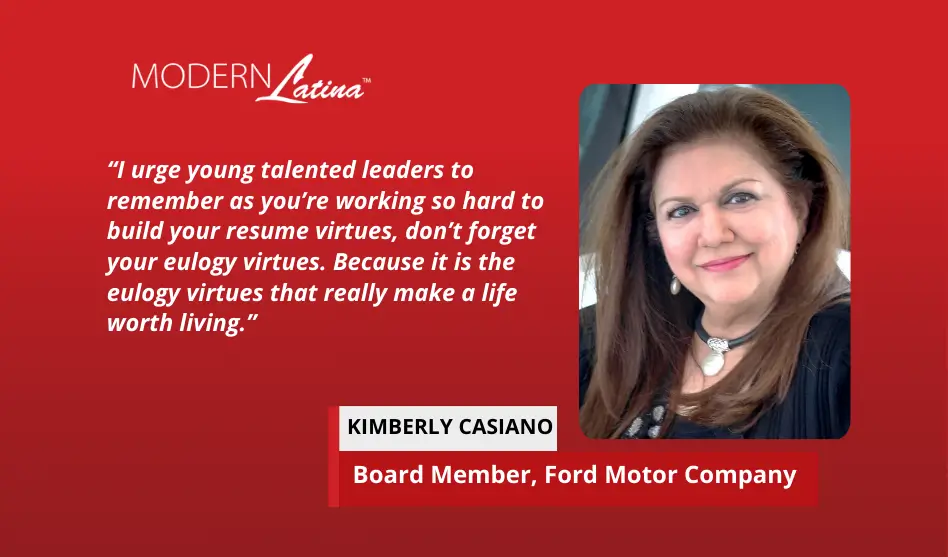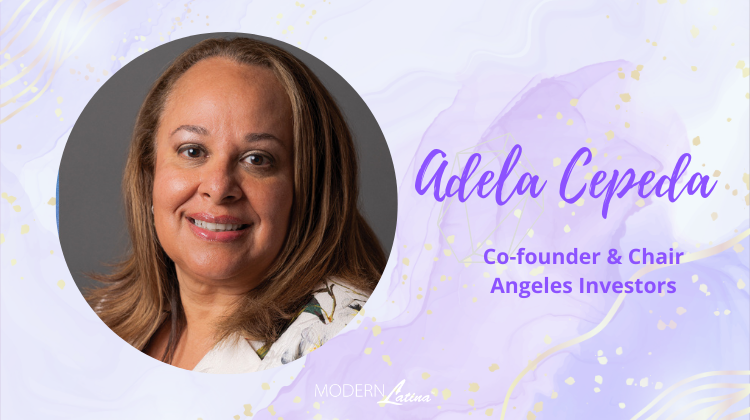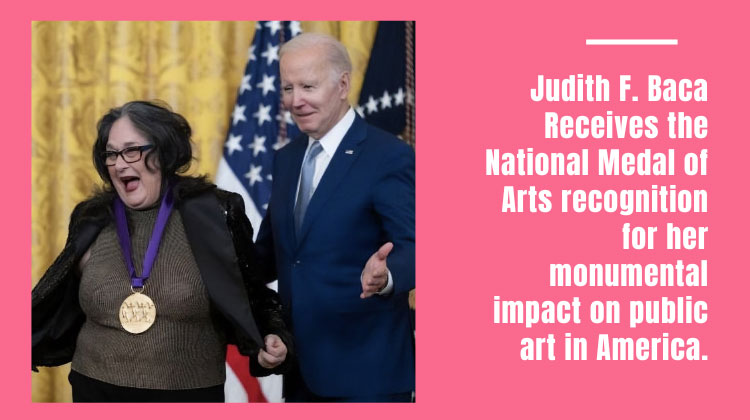Dr. Hortencia Jiménez is a speaker and Socialist, Dismantling Diet Culture and Transforming how Latinx communities care for themselves. She was born in Nayarit, México, and was raised in Watsonville, California. She uses various forms of media like publications in leading journals in sociology and Latino studies, her podcast Dismantling Diet Culture: Fuck Being Calladita, her classrooms, and much more to dismantle diet culture in our communities. In this interview, Dr. Hortencia Jiménez sat down with me for an interview to discuss her work on her Podcast, herself, Academic Consejitos, and her Indigenous experience in higher education.
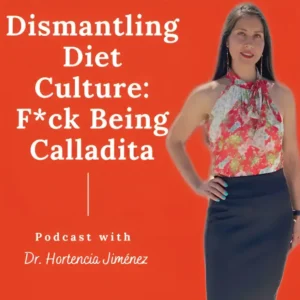
Dr. Hortencia Jiménez, grew up in a working-class household with two strong women who took charge of the home. She spent her childhood summers and teenage years working in the fields, picking raspberries alongside her grandmother. As the primary English speaker in her family, she often served as a translator. Reflecting on this experience, she acknowledges the unique pressures first-generation students face. While she admits to going through the typical teenage phase of feeling annoyed by the constant need to translate, she eventually recognized the deeper significance of her role:
“They were trusting me…investing in me to be their voice”
Like in many Hispanic households, she grew up in an environment where discussing emotions was neither encouraged nor expected. She often felt the need to suppress her feelings and thoughts. Now, as an educator, she emphasizes to her students the importance of their presence in higher education, reminding them that they are valuable assets. She also encourages them to embark on their own journeys of healing and self-reparenting, as she has done over the past 20 years. She challenges them to engage in meaningful conversations with family members, saying:
“Ask them, ‘Hey! I want to talk about this in my childhood and I want to let you know how this experience impacted me.’ ”
I asked her a little more about her experience working with her grandmother in the fields picking strawberries. She admitted that it was hard work and shared,
“It didn’t feel great having to work in the fields while all the other kids were going on vacation.”
She spoke candidly about the embarrassment and shame she felt at the time, recognizing that these feelings stemmed from societal influences-the stigma surrounding farmworkers as immigrants and the perception of their work as dirty. It wasn’t until she reached college that she had begun to unlearn these harmful narratives and shed that mindset. Today, she takes pride in her immigrant background and her experience working in the fields. She sees it as a source of strength, both physical and mental, and credits it with shaping her strong work ethic and sense of pride.
She says, “Es un poquito de todo”, working in the fields is one component of many immigrant experiences she had that fueled her passion to do what she does now.
She encourages her students to get an education and to come back because that’s how we can make a change, that’s how we can contribute socially, politically, and culturally.
She highlights how academia alienates students from their families and communities, cautioning against losing touch with those roots. She shares,
“I had enough of my PhD, I have to trust my intuition and my vision.”
Our conversation naturally transitioned into discussing our Indigenous experiences in higher education. Many of us feel that academia disconnects us from the intuition and connection to our indigenous culture. Her response was a reminder that our experience reflects the journey of so many others.
“That’s what Eurocentric, western education does. It slowly strips us of our ancestral connection. That is part of settler colonialism. That is part of the empire. That is part of the project.”
She emphasizes that losing our sense of identity means losing our power, our grounding, and ultimately, who we are. For many of us from BIPOC and Indigenous backgrounds, this disconnection is almost inevitable, shaped systems designed to set us up for failure. Dr. Hortencia Jiménez encourages compassion for ourselves, urging us not to blame ourselves for conforming to oppressive structures.
“We internalize oppression, we internalize shame”, she explains. “And sometimes, that can lead to distancing ourselves from our families. It’s painful for everyone involved.”
However, she stresses the importance of reclaiming and reconnecting with our roots, saying:
“We have that responsibility to reculturate, to reindigenize, and return to our practices.”
She sees Indigenous practices as a source of strength—a superpower that provides grounding, spirituality, and a solid foundation. For Dr. Hortencia Jiménez, reconnecting with her indigeneity has been a life-saving practice through various transitions in her life. She states,
“That is a way to decolonize our mind, our spirit, and our body.”
With a student-centered, intersectional, and decolonial teaching approach, Dr. Hortencia Jiménez fosters a supportive learning environment where her students feel seen, validated, and empowered in both their academic and personal journeys. She encourages her students to unlearn limiting narratives and heal through education, sharing,
“I tell all my students to unlearn the limiting narratives they have internalized about themselves, and we do it in class. The way I teach is healing because I connect Sociology with my indigeneity.”
Dr. Hortencia Jiménez encourages everyone to incorporate affirmations, practice self-care, and actively seek joy in their lives, whether that’s through a comforting meal, watching a favorite show, or listening to music.
Of course, we did not steer away from having a conversation about diet culture. Dr. Hortencia Jiménez says she has a free resource on her Instagram, which can also be accessed through this link. This resource is a book offering strategies to disrupt harmful food and body image narratives, all through a culturally relevant lens.
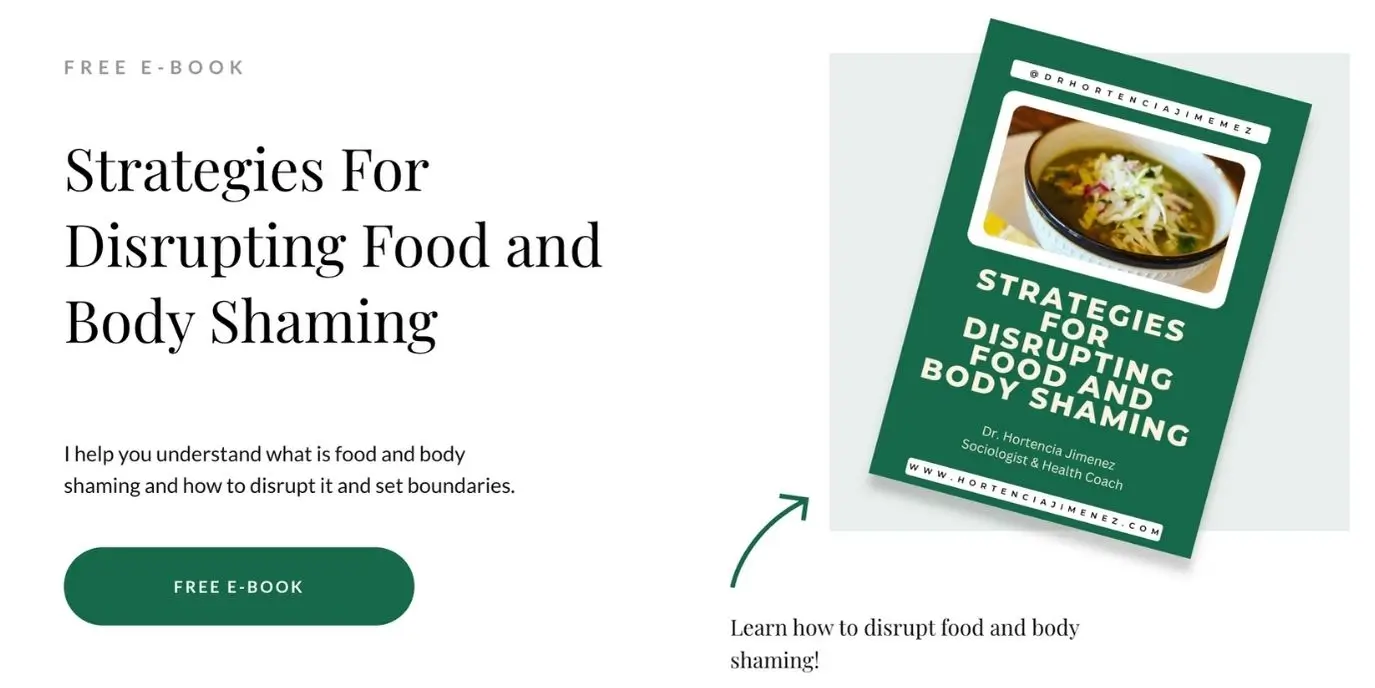
She emphasizes the importance of self-compassion and recognizing the societal, environmental, and familial influences that shape our perceptions of food and body image. These influences often lead to internalized beliefs about beauty and worth.
“We might believe that being beautiful means being thin, having straight hair, green eyes, light skin but not being brown or speaking our Indigenous language,” she explains.
Dr. Hortencia Jiménez highlights that awareness is the first step toward dismantling these harmful ideas:
“We cannot dismantle or divest from something we are not aware of
This critical work inspires her social media content, workshops, and courses such as Sociology of Food and Culture and Latina Sexualities.
She clarifies her philosophy:
“I don’t promote “love your body” or body positivity. I promote body neutrality, body liberation, and body sovereignty. Each a distinct and empowering framework.”
Dr. Hortencia Jiménez’s passion for her work stems from the troubling reality that girls as young as 4 or 5 years old often begin to develop low self-esteem about their bodies. She reflects,
“No little girl at that age should be thinking about her body. She should be having fun and exploring her surroundings.”
She highlights how body dissatisfaction can lead to eating disorders or disordered eating, and warns that a negative relationship with one’s body can spill over into unhealthy relationships in general.
“Society doesn’t want strong and powerful women. Especially us-people who look like us,” she says.
For indigenous women navigating higher education, she offers heartfelt advice:
“Find community. Find programs. Find what feels right to you. Find the energy.”
Dr. Hortencia Jiménez wants all students to know they are not alone and reminds them that their faculty genuinely care about their success.
Her legacy, she says, lies in challenging norms and disrupting the status quo:
“I am challenging conventional ideas. I am challenging the status quo. The way I teach challenges Western education. What I research and write about challenges the status quo. The work I do on social media and my existence as a queer Indigenous woman.”
Looking forward, Dr. Hortencia Jiménez hopes to design innovative curricula, host more workshops and training sessions, and launch other meaningful projects she has in the works.
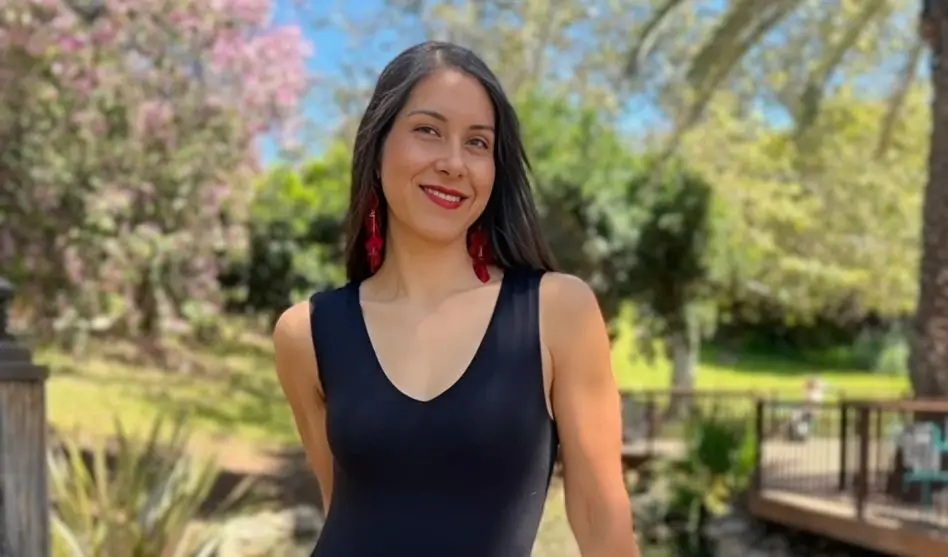
You can follow Dr. Hortencia Jiménez on Instagram or listen to her podcast.

